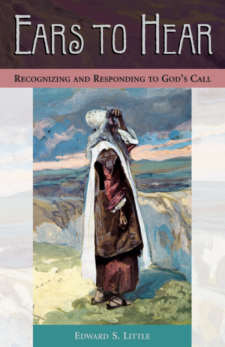March 28, 2016
Intentional Listening
 Alleluia! It feels good to say THAT again! Glorious celebrations of Jesus’ resurrection are still ringing in our ears as Eastertide joyously overtakes the liturgical calendar following Lent.
Alleluia! It feels good to say THAT again! Glorious celebrations of Jesus’ resurrection are still ringing in our ears as Eastertide joyously overtakes the liturgical calendar following Lent.
The observation of a “Holy Lent” often involves personal reflection, considering how we are moving toward a deeper relationship with Jesus Christ, and what barriers may be getting in the way. We may also consider how we follow Jesus as apostles sent to do His work.
If you enjoyed a Lenten discipline in which you did some intentional listening for God’s will or desire in your life, consider continuing that discernment. “Wait,” you might say, “’Discernment’ is for those who feel called to be a priest or deacon. That’s not me!”
In his book, Ears to Hear: Recognizing and Responding to God’s Call, Edward S. Little, bishop of the Diocese of Northern Indiana, opens with a declaration worthy of our consideration: “God’s people are a called people, and there are no exceptions.” (Page 1)
Bishop Little uses examples from the Bible to demonstrate how and when God called people to leadership, to ministry, to special purposes. Examples include Abraham’s call to uproot his family to go to a new land, Moses called to lead God’s people out of bondage, and Deborah called by her community to save Israel.
Those are the well knowns. Bishop Little also raises up the lesser knowns, such as Bezalel and Oholiab, chosen by God (in Exodus) to build a tabernacle:
"They had no public role in the Israelite community – they were ordinary people who did ordinary jobs. In fact, the particular ministry they were commissioned to do flowed directly from the skills and talents they employed in their work. …But their task was a calling from the Lord. It may have been “ordinary,” but it was divinely ordered.” (Page 40)
What gifts do each of us possess for God’s glory and purpose? What fears or self-doubts are holding us back from fully living into ministries? How can our brokenness enable us to bless others? Questions at the end of each chapter of Ears to Hear help the reader identify his/her own gifts and opportunities for ministry.
Reading this book raised a question of my own: How might our congregations be strengthened if more individuals spent time in intentional listening for God’s call in their lives?
I believe Ears to Hear could be used by congregations to invite self-reflection and discernment for us ordinary people. As we grow bolder in understanding our identities as Jesus’ ministers, may our churches find opportunities to use our gifts to build up the Kingdom of Heaven.
Don't miss a blog post! Subscribe via email or RSS, using the grey box on the upper right.





